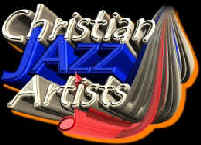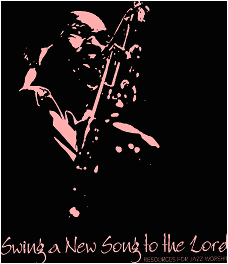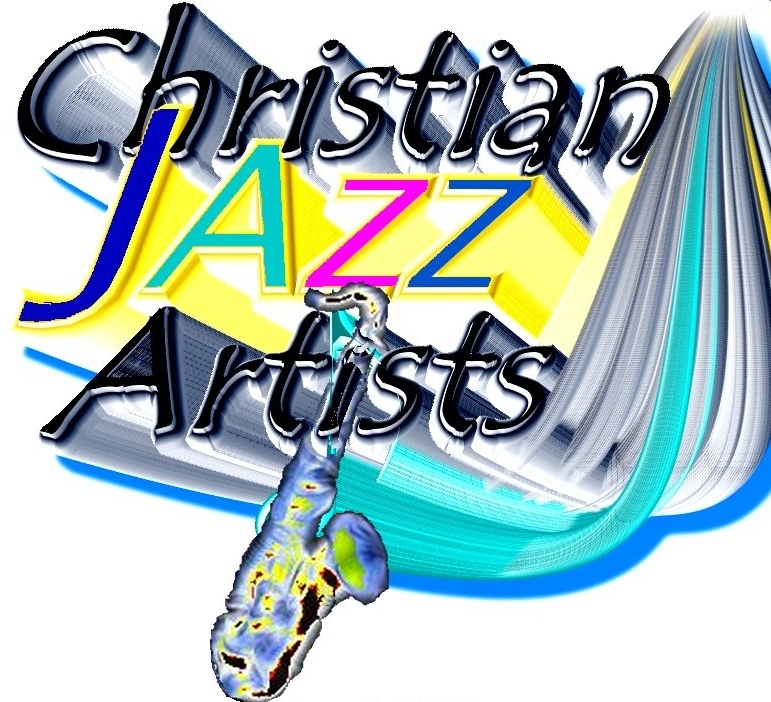CJA Featured Interview With Bradley
Sowash
When
did you start developing a love for Jazz music?
Bradley:
I grew up in a musical family.
My mother was a singer and my father played
trumpet. They
met while playing in a big band back when jazz was
popular music.
My older brothers also played.
When we were kids, we took turns playing
“When The Saints Go Marching In” on a variety
of instruments on Friday nights.
We didn’t know we were improvising.
We were just having fun.
Jazz is as free a music as you could ever
play.
Did
you study Jazz piano formally and if so where?
Bradley:
I had the standard kid piano lessons until
about age 12.
This was supplemented by my brothers
teaching me theory and practical stuff like how to
read chord symbols.
I found a jazz teacher at age 15 but I
wasn’t a very good student – typical cocky kid
who thought he already knew it all.
In high school, I played in the jazz lab
band and also attended a couple of jazz camps.
I majored in music composition in college
rather than jazz which was a good move.
Later, when I lived in New York City, I
studied with Joanne Brackeen and jammed with a lot
of great musicians doing society gigs.
I’ve also read a lot of books which help
to clarify things but, ultimately, jazz is an
aural art form.
Musicians learn from each other both on and
off the bandstand.
Who
do you consider some of the main influences on
your writing and playing Jazz?
Bradley:
My favorite pianists include Keith Jarrett
for his inimitable technique and rich musical
imagination, Oscar Peterson because he swings
so,so hard, Lyle Mays for his lyrical touch, Bill
Evans for his whole concept of the instrument,
Egberto Gismonti for the sheer beauty of his
compositions, Vince Guaraldi for his optimism...
there are more.
However,
my biggest influences are life experiences.
I’m more interested in the ability of
music to connect with real world feelings than I
am in exploring the permutations of a tetrachord
or whatever.
Other
than that, I’m fascinated by what I call
“America’s Musical Melting Pot.”
What is it
in spirituals, tin pan alley, the blues,
shape note singing, bluegrass, ragtime, jazz,
Gershwin, Copland and others that define the
American sound?
I’ve been exploring that question
throughout my musical life.
You
have developed a Jazz worship service that you
help provide at churches where you play. Can you
tell us about that?
Bradley:
The possibilities are endless but the goal is
always to create a worship experience with a music
emphasis that is welcoming, participatory and
accessible to all. In the beginning, I would
collaborate with church leadership to plug my
music into their existing order of worship. More
and more, however, I’m being asked to create the
whole service. Churches that are interested in
alternative worship find that “Jazz Sunday”
offers an opportunity to try new things beyond
just changing the music.
Liturgical churches have less flexibility
with their worship, but its still possible to
revitalize the tradition.
For example, I’ve developed service music
including a Sanctus, Doxology and responsorial
prayers that are all jazzy but can easily sung by
the congregation.
Eventually, I plan to add Glorias, Amens,
and the rest to create a complete jazz mass.
I’m
big on mixing participation with contemplation so
all of my services include hymn singing (but with
jazz accompaniment), lay readings (scripture and
poetry), and prayer alongside simply listening.
For example, in lieu of a sermon, I often perform
jazz arrangements of hymns and spirituals
interspersed with commentary connecting the music
to the theme of the day.
I make it a point to emphasize inclusivity,
service, gratitude and grace over judgment while
trying to steer clear of actually preaching.
How
often do you get to lead a Jazz worship service?
Are they more frequently in the evening ( Jazz
Vespers?) Or do you get the opportunity on Sunday
Morning?
Bradley:
Right now, I’m doing at least two
services per month.
It slows down during the summer and major
holidays when the traditional approach seems more
appropriate. I
have been involved with Jazz Vespers but my
preference is for Sunday mornings.
I feel that jazz is entirely appropriate
for worship here in its country of origin and
should not be marginalized to some sort of side
affair.
I
noticed that you sometimes play at churches with a
trio. Any plans for a recording as a trio?
Bradley:
In the Fall, I’ll release For the Beauty
of the Earth, Hymns and Spirituals for Solo Jazz
Piano, Vol. 3.
After that, I’m not sure what I’ll
record. If
it is with a trio or quartet, I’d like to do it
live in order to capture the spontaneous energy of
improvising musicians.
I’m also interested in documenting my
choral arrangements.
Who can say for sure?
Of course the incentive to continue
recording gets lower every year with file sharing,
CD burning and dropping prices.
It’s getting harder and harder to recover
the costs involved.
That’s one reason I’ve focused on solo
recordings – no musicians to pay.
I
also noticed that you are going to be providing
Jazz Choral arrangements so choirs can participate
when you do Jazz Worship at churches. Are you
writing the arrangements? Will these be made
available so others can use these arrangements at
churches abroad?
Bradley:
I started writing choral arrangements so
the choir would have something to do when I came
to their church as a visiting artist.
A few months back, I made them available on
my website and they have been selling well.
I’m interested in pursuing much more
choral writing.
My pieces can’t be learned in 30 minutes
on a Thursday night but its worth the extra effort
when the congregation sits up and reacts to the
syncopated rhythm.
You
do Jazz Workshops at churches as well. Tell us a
little about that.
Bradley:
Actually the workshops are geared towards
larger gatherings such as denominational
conventions and regional annual meetings rather
than individual churches.
My most popular workshop is “Where Two or
More Are Gathered; A Workshop in Alternative
Worship Strategies.”
I’ve also led sessions on “How To
Organize A Jazz Worship Service.”
Every denomination has a church
musician’s network.
I teach Improvisation Master Classes and a
hands-on program called “Moving Beyond Classical
Styles For Church Musicians” at their meetings.
Share
with us your most memorable Jazz Worship service
at a church and why.
Bradley:
There’s been so many.
Expectant congregations provide the perfect
performance setting because they invite in the
Spirit. And
when it comes, watch out!
More than once, I’ve had to dab my eye
while playing or speaking.
That never happens in jazz clubs or bars.
American hymnody is such a rich tradition.
I don’t arrange hymns and spirituals
because I play in churches.
I play in churches because I love the
music.
Do
you find a spiritual connection in playing and
writing music? Some writers consider the creative
process to be a gift from the Creator and feel the
spiritual connection very strong while writing
music. What are your thoughts concerning this?
Bradley:
I think it’s true that creativity does
sometimes seem to flow through rather than come
from the individual artist.
It’s a real high to be in the moment with
ideas coming as faster than you can struggle to
capture them.
However, for the non-creating lay person,
this description of creativity is misleading.
It suggests that composers simply turn on
the juice and music comes out.
Actually, it’s after
the inspiration that the real work begins.
Quality music doesn’t happen by accident.
Rather, it results from applied
craftsmanship and patient attention to the
details. This
is as true for composing as it is for improvising
in which all of the learned responses of a
performer must come to play spontaneously.
I always say anybody can have great ideas.
The difference between “anybody” and
the “artist”
is that artists bother to take the necessary pains
to bring their ideas to fruition.
You
also spend quite a bit of time as a Jazz Educator,
both in schools and even recently on the National
television music educational series, “ The Piano
Guy”. Share with us more about your Jazz
Workshop programs and more details concerning the
television series.
Bradley:
I’m interested in giving young musicians
the opportunity to learn from each other like when
I used to jam with my family.
That’s why I started the Jazz Workshop.
On Friday nights, student musicians are
coached by professional musicians in small jazz
combos where every instrument counts and no one
can hide. Every
now and then, we perform a concert.
I also offer a Summer Jazz, Improvisation
& Theory Intensive in which students can bone
up on the inner workings of music for a week in
July. More
information is available at www.cmconnection.org
The
Piano Guy is new 13 part PBS series in which the
host, Scott Houston picks the brains of
professional pianists for tips and secrets.
I’m on the third program.
The show combines a how-to format with
entertainment.
On This Old House, you watch Norm show off
his craft by building a cabinet.
The Piano Guy lets you hear and see how
professional pianists approach
their musical constructions.
The website is www.mjp.com
How
do you promote all these great things you are
doing? Do you have a booking agent?
Bradley:
I do it all myself.
Sometimes I feel more like a manager than a
musician. Right
now, I spend way too much time at the computer and
not enough time composing or practicing.
Occasionally, I hire an assistant to handle
marketing duties like stuffing envelopes or
contacting presenters.
What
advice can you give the Christian Jazz Artist who
wants to start doing Jazz worship services,
workshops, or concerts? How do they obtain
engagements?
Bradley:
Go to a church that is known for visionary
programming or a willingness to take risks.
As the preacher to give you a shot and then
deliver a real worship service.
Jazz worship can be wonderful or awful.
Someone once told me, “We had a jazz
service but it felt weird to take communion while
listening to “Girl From Impanema.”
That wasn’t a jazz service.
It was just somebody playing their Saturday
night stuff on a Sunday morning.
Create a liturgy with an eye towards
worship rather than personal acclaim, and you’ll
be blessed. Also,
don’t be afraid to groove and swing.
If a piece is meditative, play it
reverently. But
if it is supposed to be a celebration, let it rip!
You
recently announced that you will begin offering
downloads on a “pay per song” basis on your
personal web site. Do you see this method of
obtaining music the future for purchasing music?
Bradley:
I do have a few free downloads available on
my website but my entrance into digital
distribution has been through the big players like
Apple iTunes and others.
My accounts with these companies were
arranged by CDBaby [www.cdbaby.com] which offers a
lot of useful services to independent musicians.
I
have no idea about the future of music retail.
CDs comprise the majority of my sales
perhaps because my listeners are older and too
busy to surf or learn to download.
It might be different if I were playing in
a rock style.
What
is your favorite church hymn and why?
Bradley:
I really can’t name just one. Spirituals such as
”Wade In The Water” or “Swing Low, Sweet
Chariot” lend themselves to jazz because they
already swing.
Folk hymns such as “Wayfaring Stranger”
or “Beach Spring” are absolutely haunting.
I’m mostly drawn to anonymous tunes.
Their durability is intriguing.
Generations of handing down new renditions
have reduced them to their essential qualities.
They are indestructible like an onion that
you throw in the compost bin in the Fall only to
find it sprouting in the Spring.
For example, “Amazing Grace” sounds
great whether it is performed as a waltz, a
shuffle, on bagpipes, piano, you name it...
A tune with this much ‘essence’ offers
the arranger plenty of leeway and listeners,
because they know the tune so well, can appreciate
the variations.


